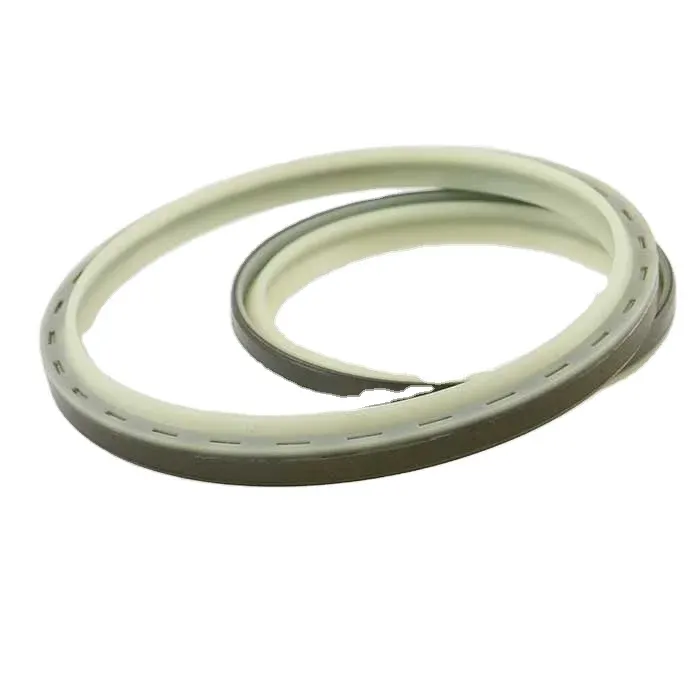Aug . 18, 2024 04:38 Back to list
Hydraulic Oil Seal Applications and Benefits in Various Industries
Understanding Oil Seal Hydraulic Systems Importance and Functionality
In hydraulic systems, effective sealing is crucial for optimal performance and longevity. One of the most significant components used in these systems is the oil seal, often referred to as a hydraulic seal. These seals play a critical role in preventing fluid leakage and maintaining pressure within hydraulic machinery. This article explores the importance, functionality, and applications of oil seal hydraulic systems.
What is an Oil Seal?
An oil seal is a sealing device that retains fluid within a system while preventing contaminants from entering. Typically made from materials such as rubber, polyurethane, or synthetic composites, oil seals are designed to withstand high pressures and varying temperatures. In hydraulic applications, they serve to confine hydraulic fluids, ensuring that the system operates efficiently without loss of fluid or pressure.
Importance of Oil Seals in Hydraulic Systems
1. Leak Prevention One of the primary functions of an oil seal is to prevent hydraulic fluid from leaking out of the system. Leaks can lead to inefficient operation, increased costs, and environmental hazards. By ensuring a tight seal, oil seals help maintain optimal fluid levels and system pressure.
2. Dirt and Contaminant Exclusion Hydraulic systems are often exposed to harsh environments where dirt, dust, and other contaminants are prevalent. Oil seals provide a barrier that protects internal components from wear and tear caused by these foreign particles.
3. Pressure Maintenance Maintaining the correct pressure within a hydraulic system is vital for achieving desired performance levels. Oil seals help retain pressure by preventing the escape of hydraulic fluid, ensuring that the system can perform its intended functions without interruption.
4. Increasing Equipment Longevity By preventing leaks and contamination, oil seals contribute to the overall longevity of hydraulic equipment. Costly repairs and downtime can be minimized through the proper functioning of these seals, making them an essential component in hydraulic system design and maintenance.
oil seal hydraulic

Functionality of Oil Seals
Oil seals typically consist of three main components the sealing element, a metal casing, and a spring. The sealing element is the part that directly contacts the fluid, creating a complete seal. The metal casing provides structural integrity, while the spring applies radial force to ensure the sealing element maintains contact with the shaft, even under varying pressures and temperatures.
When hydraulic fluid moves through the system, the oil seal tightly fits around the moving components, creating a barrier that prevents leakage. As the hydraulic system operates, the elasticity of the sealing material allows for slight movements, managing dynamic sealing as components reciprocate or rotate. This capability is essential for the seamless operation of hydraulic machinery, such as hydraulic cylinders, pumps, and motors.
Applications of Oil Seals in Hydraulic Systems
Oil seals are used in various industries and applications where hydraulic systems are prevalent. Common applications include
- Construction Equipment Hydraulic excavators, bulldozers, and forklifts rely on effective sealing to maintain performance and prevent leaks under heavy loads. - Automotive Systems Oil seals are integral to hydraulic brake systems and power steering mechanisms, ensuring vehicular safety and responsiveness. - Manufacturing Machinery used in manufacturing processes often employs hydraulic systems to drive actuators, presses, and conveyors, making reliable sealing essential for productivity.
Conclusion
Oil seals are vital components in hydraulic systems, ensuring fluid retention, pressure maintenance, and contaminant exclusion. Their functionality significantly impacts the efficiency and lifespan of hydraulic equipment. As industries continue to evolve and demand higher performance from their hydraulic systems, understanding the importance and applications of oil seal hydraulics will become even more critical. By investing in quality oil seals and proper maintenance, organizations can enhance their operational efficiency and reduce costs related to hydraulic outages and repairs.
-
Durable 22x35x6 TCV Oil Seals: FKM & NBR for Hydraulic Pumps
NewsSep.01,2025
-
Cassette Seal 15018014.5/16 Hub Oil Seal | OEM Quality 000051785
NewsAug.31,2025
-
DKBI Hydraulic Wiper Seal 20x32x6/9 | Dustproof & Standard Oil Seal
NewsAug.30,2025
-
Eaton 5423 6423 Motor Repair Seal Kit: Premium Quality & Fit
NewsAug.29,2025
-
25x47x7 High Quality Tcv Oil Seal for Hydraulic Pump
NewsAug.28,2025
-
Wiper Oil Seal: Our Commitment to Clean Hydraulics
NewsAug.13,2025
-
Hydraulic Oil Seal for Self Discharging Cars
NewsAug.13,2025
Products categories
















